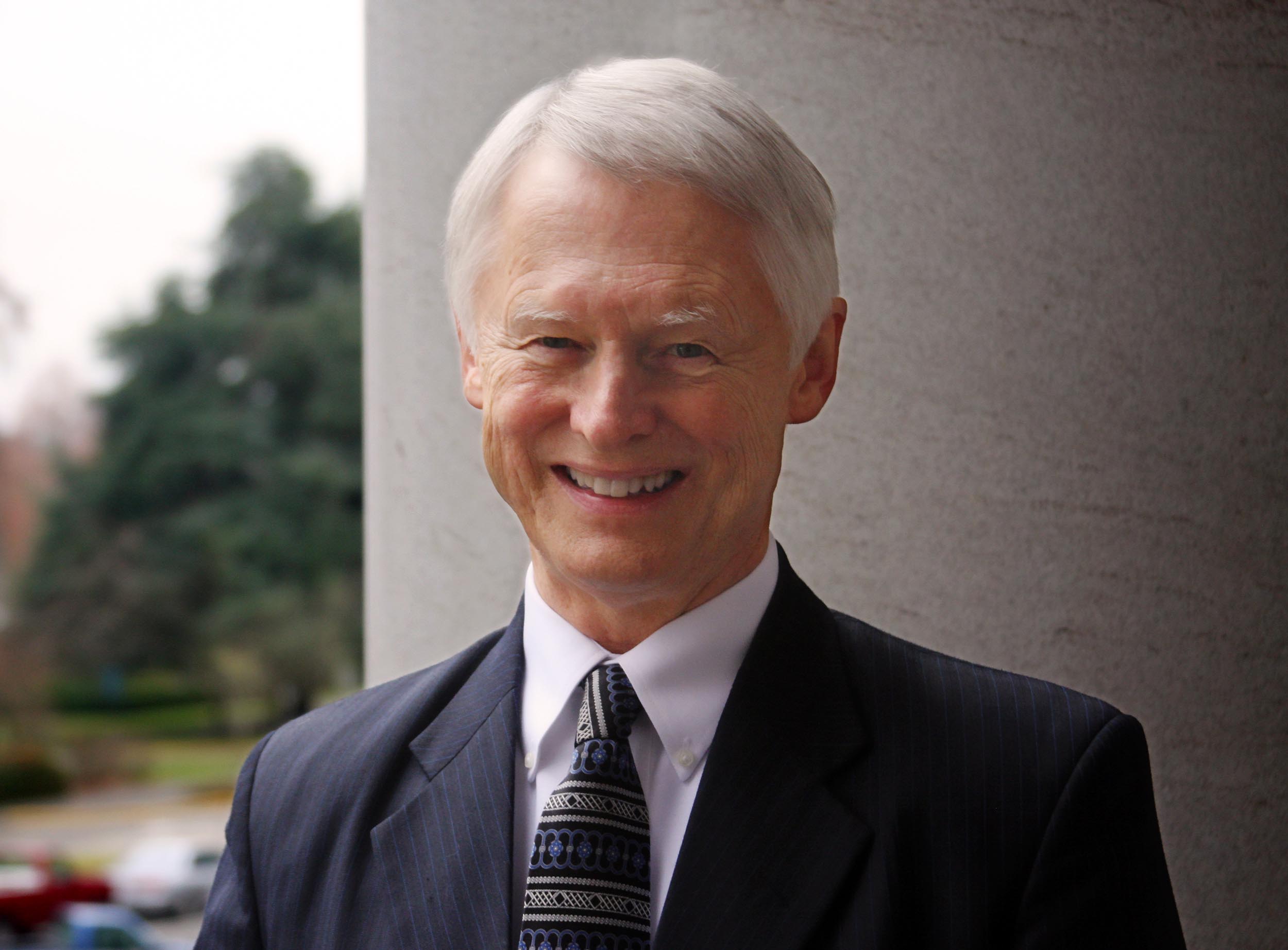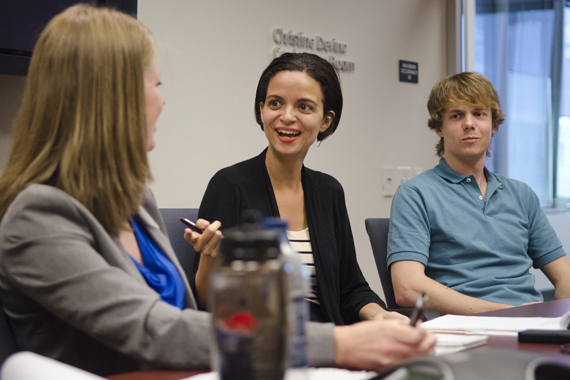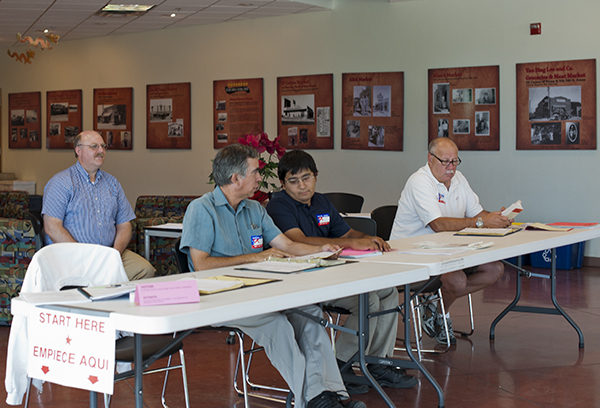As if voting rights and voter ID weren’t already
contentious and highly partisan issues, the latest
readings from Twitterverse tea leaves suggest the
issue has the potential to vault into the chaos of
election-year politics.
President Obama’s surprise announcement Friday of a
revised administration policy on youth deportation
and immigrant rights caused U.S. Rep. Allen West,
R-Fla., to openly wonder — on FOX News and in a
statement on his Facebook page — if the policy was a
back-door approach to granting voting rights to
illegal immigrants in swing states like his.
The #VotingRights hashtag was taken over yesterday
by progressive Twitter users questioning GOP
candidate Gov. Mitt Romney of Massachusetts with
copies of the following tweet:
@MittRomney, where
do you stand on the FL voter purge? #p2 #votingrights
The increasing presence of voting rights activists
on both sides of the political divide at campaign
events and in policy discussions suggests we might
see these issues become key electoral questions.
Indeed, in potential presidential swing states with
contentious tickets for November — states such as
North Carolina and Missouri — questions of voter ID
laws and the expansion of the franchise have become
wedge issues for gubernatorial and secretary of state
candidates.
Will this change the digital conversation around
voting rights? We’ll be the first to tell you when
and if those changes happen.
What We’ve Been Reading
“Florida’s voting standoff deja
vu?” (Halimah Abdullah, 06/13, CNN)
“Gov. Scott says he ‘feels your pain,’
will continue purge anyway,” (The Ed Show, 06/14,
MSNBC.com)
“Rep. Allen West Alleges New Obama
Policy On DREAMers Is Voter Fraud Conspiracy For 2012
Election,” (Adam Peck, 06/15,
ThinkProgressJustice)
“On the Administration’s announcement
today to grant certain citizenship rights to young
illegal immigrants,” (Rep. Allen West, 06/15,
Facebook)
“Indianapolis Meeting Compares Voting
Machine Standards,” (Network Indiana, 06/15,
Indiana Public Media)
“NOTES FROM NARBERTH: Don’t believe
the rhetoric: Voter ID law is fair to all,”
(Rosemary McDonough, 06/14, Mainline
Times)
“The Missing Right To Vote,”
(Heather Gerken, 06/13, Slate)
Twitter Trends
As we mentioned earlier, the #VotingRights hashtag has been
largely dominated by progressive opponents of
Florida’s controversial voter removal. Liberal
political action committee MoveOn.org posted a
digital call to action yesterday,
asking readers to tweet and post Facebook comments
inquiring where Romney stands on the voting rights
controversy in Florida.
Social media search engine Topsy.com
suggests the hashtag dominance hasn’t been enough to
produce a major spike in the term when compared to
recent high points — the June 5
Wisconsin recall election and the eruption of
election lawsuits in Florida June 12 — but it has
increased mentions and taken over our Tweet Deck
column.
There may not be another contentious election or
primary before November for us to test the admittedly
elementary theory that ballot access only receives
widespread attention when everyone is actively voting
(or not voting), but we’ll keep our eyes open for
better ways to chart the mention trends of #VotingRights, #VoterID, #VoterFraud and #VoterSuppression.
Be sure to follow us @WhoCanVote, and stay tuned for more
from our team next week!






